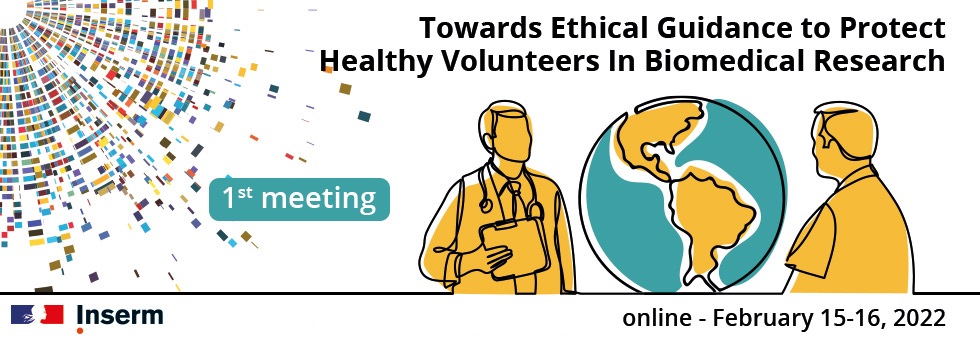
|
|
|
|
Aims & perspectives of the workshop Healthy volunteers have always played a vital role in medical research to serve as controls for patient groups allowing them to define the limits of "normal." They are also required to test new medical strategies, including more or less invasive medical tests, drugs or medical devices. Their role has been exemplified during the COVID-19 pandemia allowing the rapid development of effective vaccines. However, exposing healthy people to unknown risks raises complex ethical issues. Initiated by a working group of Inserm ethics committee, this meeting aims at paving the way to elaborate an international consensus and guidance in biomedical research involving healthy volunteers. It will allow discussion between the major actors of the biomedical research involving Healthy Volunteers, from the public and private sectors, for-profit or not, coming from industrialized countries and from countries with lower economic incomes. Our objectives are, on the one hand, to identify the various research projects that expose these highly vulnerable participants and on the other hand, through exchanges between the actors gathered, to propose recommendations to allow a comprehensive ethical and responsible management of these researches. Because most attendees will remotely participate in this meeting, discussions and interactions will be limited. We expect this first meeting to lay the foundations of a second in-person workshop that will be set up once international travel is possible again. We anticipate that from this first workshop we will be able to organize thematic working groups and will meet remotely to provide guidelines for concrete good practice on the ethical involvement of healthy volunteers, which will be approved during the second workshop. To register and attend the workshop, you will need to create a personal account on sciencesconf. Agenda Online event from the UNESCO House in Paris, FranceHours shown in France/Central Europe Time (GMT+1) DAY 1 – SETTING THE SCENEFebruary 15th, 2022
12H30 – 13H30 • LUNCH BREAK
15H50 – 16H05 • BREAK
DAY 2 – DRAFTING RECOMMENDATIONSFebruary 16th, 2022
13H00 – 14H00 • LUNCH BREAK
15H40 – 15H55 • BREAK
|
||||||||||||||||||||||||||||||||||||||||||||||||||||
| Online user: 2 | Privacy |

|
